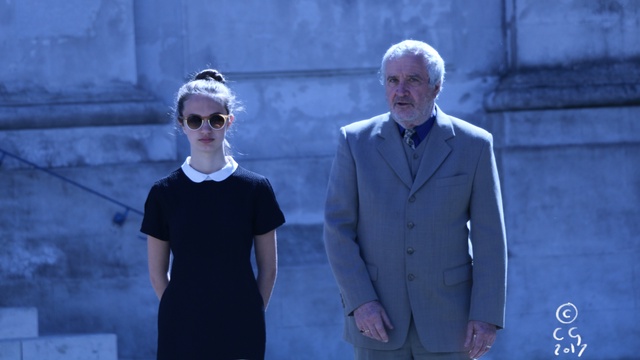Part of French Film Festival 2017
Ambition and vision are fundamental to creativity. Striding forward can inevitably lead to the occasional trip or fall. Abrahadabra, from director Yannik Ruault, has bold ambitions but isn’t able to fully realise everything it sets out to do. Ruault is here at the Belmont Filmhouse tonight and it is always a privilege to hear an artist both introduce their work and answer questions. He describes his intention to illustrate how filming with a tablet changes the style of narration and his own feeling that there is an opposition in point of view between a traditional film camera and the tablet. Jane, her father and grandfather all film footage in their own distinctive styles, with Jane in particular much freer and more likely to interrupt her own filming. Whether these differences are overt enough for the general viewer to pick up on is open to question.
Unfortunately, on this occasion, storytelling been sacrificed for this stylistic emphasis. The relationships are clear but it’s difficult to care for any of them, as their idyllic surroundings and relaxed lifestyle don’t indicate any struggle whatsoever. It’s not enough for an audience to be told by one character that another doesn’t eat or sleep; we need more. Some atmosphere does begin to build with some shots (for example, in the dark stables where horses take on an uncanny bulk), but they are over all too quickly. More worryingly, the poor quality of the subtitles is distracting and undermines the overall impact of the film, whatever that may be.
From the blurb in the brochure, you would be justified in thinking this film was an investigation of grief and bereavement after a child loses their father. Abrahadabra is certainly about a child, but its choice of gaze is unexpected. Ruault is clear about his intentions for the film (available here) but perhaps, if time and budget had allowed the film a final polish, they would have been easier to grasp and appreciated for their sincerity.
